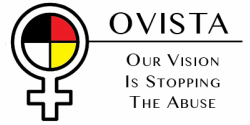
Sometimes it is easy to tell that you are being abused. You know that your partner hits you. You have bruises and scars. You are sometimes afraid of your partner. Sometimes it isn't as obvious. Maybe your partner has never hit you, but you still don't like the way he treats you. Read more...

If you have been relying on your partner to contribute to your household income, then leaving with your children is probably daunting. Many women like you in unsafe relationships rely on their partner for income and shelter. Leaving means giving up that shelter and part or all of your household income. Read more...

A perceived lack of finances does not have to be an obstacle to living a life that is free of fear and shame. Lack of money or a steady, healthy income is one of the biggest reasons that women stay with abusive partners. Read more...

Leaving a toxic relationship is scary at the best of times. If you have children, it's even harder. You don't have just yourself to worry about. You have children whose needs you must also think about.There are many questions that mothers ask when they decide to leave an abusive partner. Read more...

It is common for women in abusive relationships to feel ashamed. They blame themselves for staying so long in the relationship. They feel they must be weak if they can't leave or that they didn't leave sooner. They often feel guilty for still loving their partner even after all the abuse. Read more...

Leaving a relationship, even one that is hurtful, can be a scary thing. Perhaps you have reached the point where you're ready to take control of your own life and move on, but you don't know where to go. Read More...

Many victims of domestic abuse and violence are so afraid of what their partner will do to them if they leave end up staying to "avoid" the violence. But what they don't realize is that STAYING is just as dangerous, or even MORE dangerous, than leaving. Read more...

It's common for a woman to still have very deep feelings of attachment to and even love for a person who has abused her. This is completely normal and nothing to feel ashamed of. However, these feelings can sometimes cloud a woman's judgment as to what kind of behaviour is appropriate in a relationship and what isn't. Read more...

Abusers aren't just partners and spouses. Sometimes parents abuse their children, or children abuse their parents. Abuse may come from other family members, such as a sibling. An abuser may even be a caregiver. It doesn't matter who is perpetrating the behaviour: if someone is using threats, physical or emotional force or blackmail to try to control you, this person may be considered abusive. Read more...

When a woman leaves an abusive relationship, she has some legal options available that will help protect her. In BC, there are three legal orders that can and are often used to protect a woman from an abusive former partner: a peace bond, a no-contact order and a restraining order. Read more...
